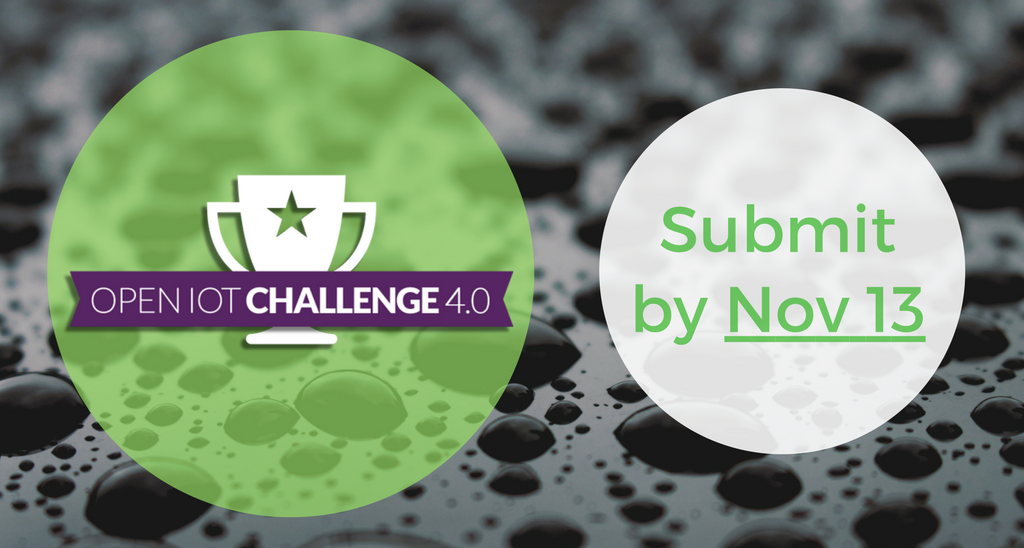The fourth edition of this challenge encourages IoT enthusiasts and
developers to build innovative solutions for the Internet of Things
using open standards and open source technology. The previous edition of
the Challenge resulted in a great solution to track sleep and improve
the life of people suffering with mood disorders.
This year’s participants will once again be supported with hardware development kits, receive technical support, and the winners will receive special prizes.
The Open IoT Challenge encourages participants to build IoT solutions using any or all of the following technologies:
Additional information about the Challenge is available at http://iot.eclipse.org/open-iot-challenge. Information about the the previous Open IoT Challenge, including the winners, is available here.

This year’s participants will once again be supported with hardware development kits, receive technical support, and the winners will receive special prizes.
The Open IoT Challenge encourages participants to build IoT solutions using any or all of the following technologies:
- IoT open standards, such as MQTT, CoAP, Lightweight M2M, MQTT, OneM2M and OPC UA.
- Eclipse IoT projects, such as Californium, Kura, Leshan, Milo, Mosquitto, Paho, SmartHome, Unide, Vorto and others listed here.
- Other open source technology, such as Cloud Foundry, OpenShift, Apache Spark or Apache Camel.
- Commercial hardware and services that interact with open source software and open standards for IoT.
Additional information about the Challenge is available at http://iot.eclipse.org/open-iot-challenge. Information about the the previous Open IoT Challenge, including the winners, is available here.

Comments
Post a Comment